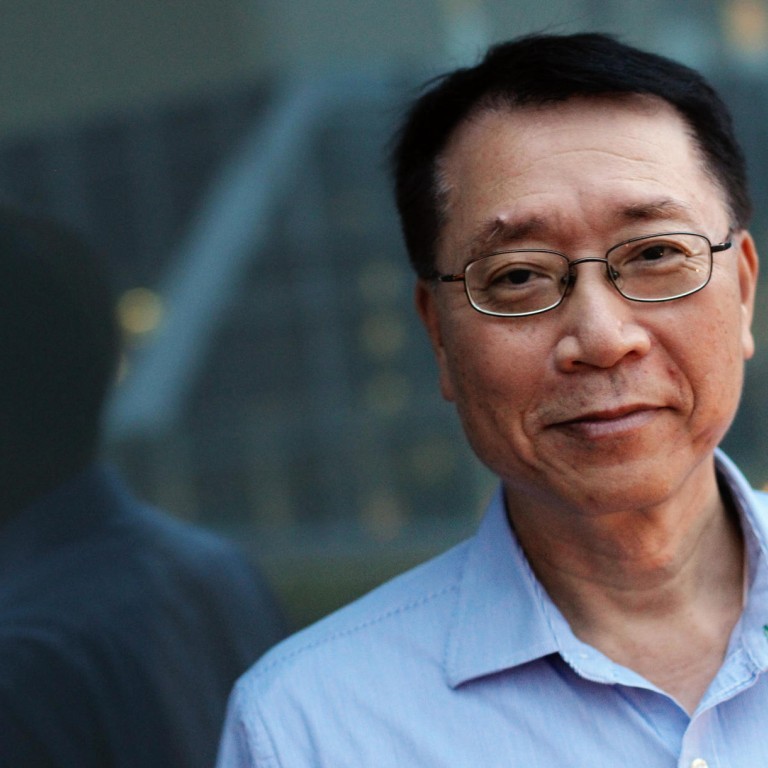
Pay Hong Kong voters for casting ballots, Silent Majority pressure group urges
Group set up to take on Occupy Central says low turnout at elections damage democratic development and lead to polarisation
Compulsory voting or cash handouts for casting a ballot can boost turnout and help make Hong Kong's politics less polarised, the campaign group Silent Majority says.
The group, formed in August to oppose Occupy Central's plan for a pro-democracy civil disobedience campaign, says the city's low voting rate is an obstacle to its democratic development.
But a political scholar linked to the pan-democratic camp has cast doubt on its ideas.
An analysis by the group found that some 5.5 million Hongkongers were eligible to register as voters, yet just 3.47 million had done so. A mere 1.83 million - one-third of those eligible - cast ballots in last year's Legislative Council poll.
"If only one-third of the people cast their votes … we highly doubt that the election results reflect the true public will," said Professor Francis Lui Ting-ming, an economist at the University of Science and Technology and an adviser to the group.
Chinese University political scientist Dr Chang Chak-yan, a co-founder of the group, believes mandatory voting will increase the legitimacy of those who are elected and help quell further divisiveness and radicalism.
"Radical parties are exhausting all means to attract votes, but [under compulsory voting] it will be of no use to them to fight, as the majority of people do not support violence," Chang said.
A system in which voters were rewarded, perhaps with handouts of HK$500 to HK$1,000, would be better than punishing those who failed to vote, Lui said.
"It will only cost the government about HK$2 billion per election," Lui said.
But City University political scientist Professor Joseph Cheng Yu-shek, convenor of the Alliance for True Democracy, said Silent Majority was confusing the concept of "compulsory voting".
"Compulsory voting means people would be fined if they failed to vote," Cheng said. "That's the case in Australia. Giving cash handouts only increases people's incentive to vote."
The problem in Hong Kong, he said, was that the people living in middle-class areas were less likely to vote than those in working-class communities, as they did not depend on the government and believed they could solve problems themselves.
"I just don't really know how much you have to offer these well-off people to encourage them to cast ballots," Cheng said.
Speaking in a personal capacity, rather than as an alliance representative, Cheng said he did not support the practice.
Australia, Singapore and Brazil are among more than 20 countries with compulsory voting laws.
In Singapore, voters who fail to cast ballots are barred from future elections unless they pay a fine or provide a valid reason.

